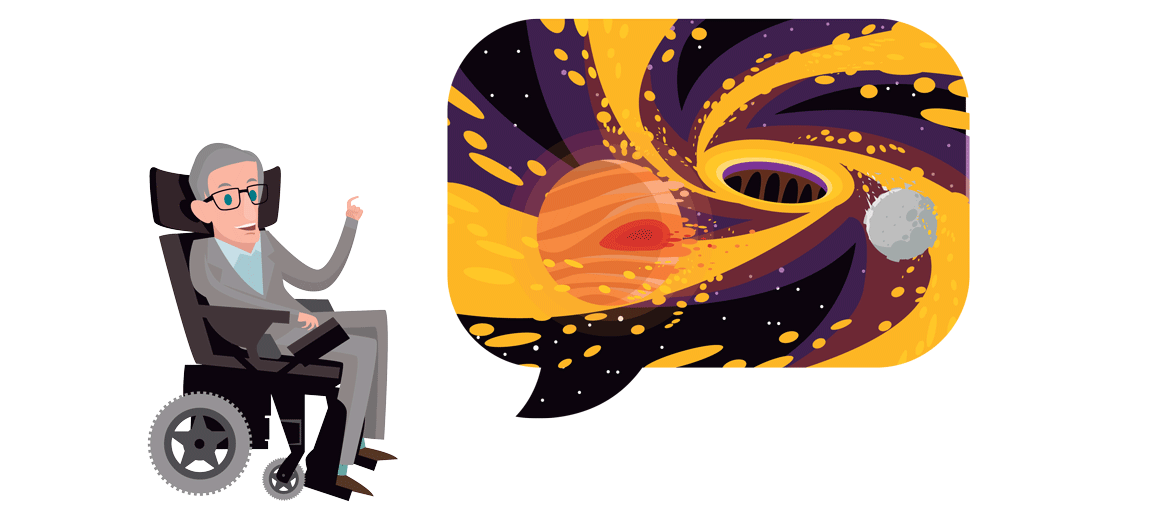“Remember to look at the stars not down at your feet”
I was hugely saddened by the sad demise of Stephen Hawking this week but massively uplifted by, not only his life, but his wonderful approach to it and his ability to live it to the full in what most of us would see as terribly difficult circumstances.
You probably all know his story. Diagnosed with motor neuron disease in 1964 at the tender age of 22 he was given just two years to live. But despite that, he went on to not only live a full and productive personal life, he also became a household figure in the world of science, and published a bestseller: “A Brief History of Time”. To this day "A Brief History of Time" remains a staple of the scientific canon, and its succinct and clear language continues to introduce millions to the universe and its wonders, even I understood about half of it!
He was perhaps most famous for his attempt to discover or identify a set of rules that hold all of science together, a law of everything. "This complete set of laws can give us the answers to questions like how did the universe begin," he said. "Where is it going and will it have an end? If so, how will it end? If we find the answers to these questions, we really shall know the mind of God." He was notorious for his extraordinary capacity to picture scientific solutions without calculation or experiment.
Pondering let alone answering questions of this scale requires any mind to throw out any rule book and think on a different plane.
“Be curious”
Generating the best possible outcome for all at the negotiating table requires this element that you may not initially expect: creativity. That requires thinking ‘outside the box’ and coming up with new, distinctive solutions to the issues at hand.
Often people see negotiating as a zero-sum game, for me to get what I want I have to get the other side have to give up their share. Now that may work in a simple transactional sense. Do I really care if the company I am trying to buy a TV from gets a worse deal? Not really.
But the reality is in many negotiation scenarios the client or supplier I am dealing with today, maybe a long-term partner, and the more effectively we can work together in the long term the better for me. Creative thinking about where value sits can help enormously in this process before we have the inevitable discussion about how that value is attributed.
“Intelligence is the ability to adapt to change”
In any negotiation, once the true needs have been uncovered for both parties, an option is to involve the other party in a cooperative search for creative options that will drive mutual improvements.
This requires trust, openness and most important of all creative thinking.
It may not create a new way of thinking about the universe, but just might help you create a better deal.
(Quotations provided by the great man himself, and wise words for the negotiator. Don’t be afraid to aim high, be curious about what and why people ask you for things and be flexible to adapt to new solutions if change is needed. RIP Stephen Hawking)

